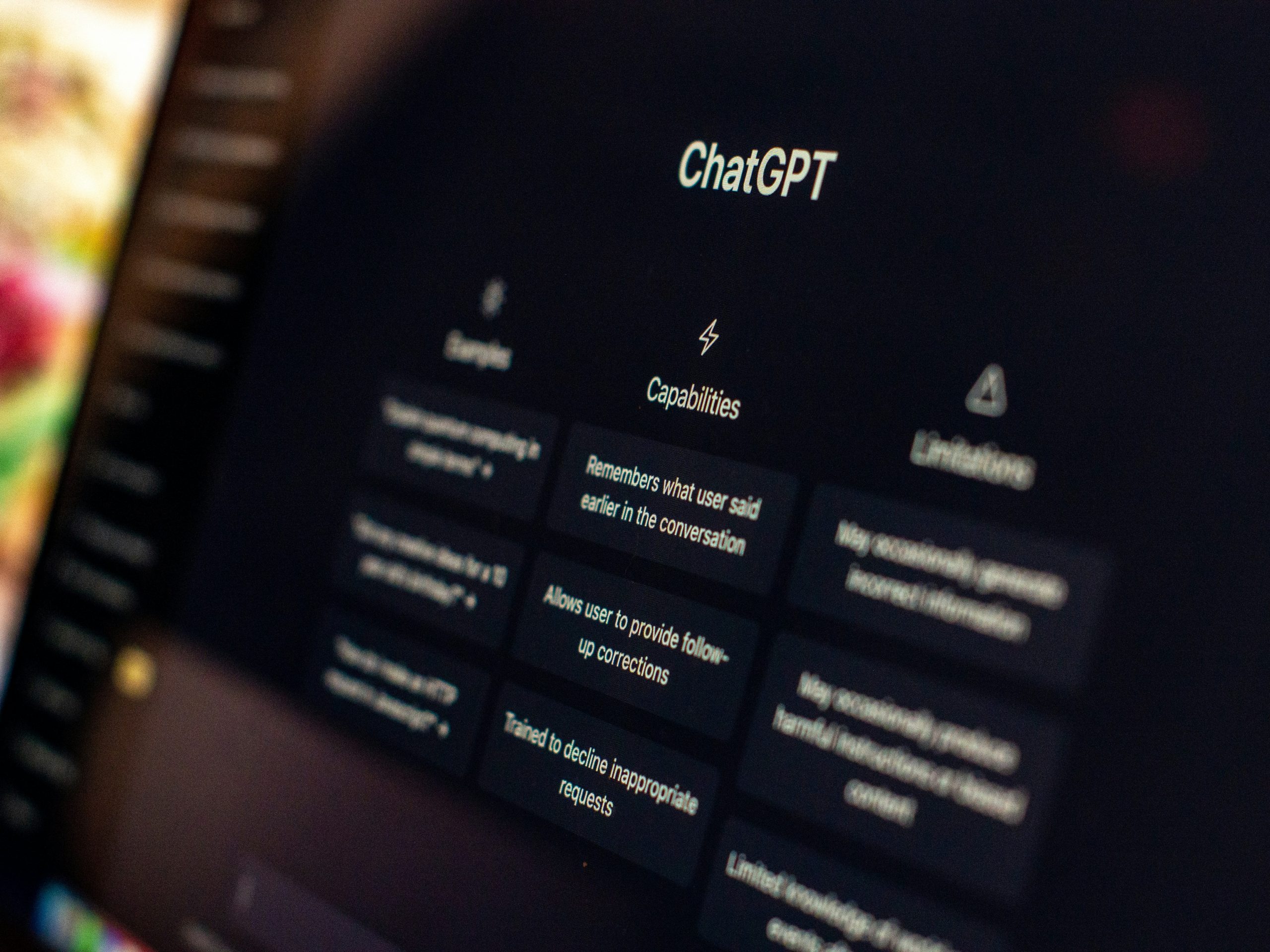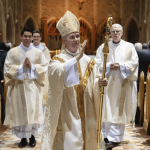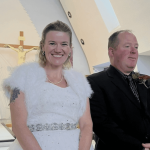CALGARY (CCN) — St. Mary’s University and the Diocese of Calgary are joining forces to advance the conversation about Catholic ethical and moral leadership on artificial intelligence with an Oct. 17 and 18 symposium titled “AI Is Transforming Society: Are Catholics Ready?”
Tech experts, theologians, ethicists and clergy leaders will deliver presentations, guide workshops and participate in panel discussions centring on AI’s potential benefits and risks.
Dr. Scott Morrison, the interim president of St. Mary’s University, told The Catholic Register that the opening presentation from Steven Umbrello, the managing director of the University of Turin’s Institute for Ethics and Emerging Technologies, is an optimal tone-setter.
“I love the title of the talk, ‘what AI is — and what it will never be,’” said Morrison. “I think that’s going to help us do some myth busting about the role it can play in our lives in a positive way, but also what we shouldn’t expect of it. I’m intrigued by that subject.”
When interviewed in June, Umbrello challenged the common stereotype advanced in various feature films that AI will inevitably become sentient and enslave humanity.
“The way we design the technology itself will determine the kinds of impacts that it will then have on our behaviour, and then that behaviour will therefore also impact on how we design future iterations of the technology,” said Umbrello. “We have to push away from the technological deterministic narrative towards a more co-constructive narrative of technology.”
Matthew Harvey Sanders, the creator of the world-leading Catholic artificial intelligence platform Magisterium AI, will also present during the morning session on day one of the conference. His presentation title mirrors Umbrello: “What is Catholic AI – and what it will never be.”
In addition to his work building Magisterium AI into the top Catholic search engine — each answer informed by the magisterium of the Catholic Church, the Holy Bible and the Fathers of the Church — Sanders is at work on the Alexandria Digitization Hub. He and a team from his Toronto-based Longbeard technology company are utilizing robotics and AI to digitize the heritage of the Catholic Church. Over 80,000 handwritten manuscripts, 100,000 archival documents and over two million books are being transferred to the web.
Sanders and Umbrello are both delivering multiple talks throughout the symposium. Sanders’ Oct. 17 afternoon presentation — There are Two Divergent Roads – The Golden Path or the Dark Path — will likely see him touch upon some of the same insights he shared with the Register in July. He said Pope Leo XIV could prove helpful in defining the hopeful path.
“I think, more than anything else, (what) will be required of the Pope is to remind human beings what life and civilization are supposed to be all about, oriented towards and ultimately what are the proper measures of true progress,” said Sanders.
Dr. Ed Tse, the founder of the Calgary-based company AI Parenting, and Louisa Lodevole, a lecturer at the University of Rome Tor Vergata’s Centre of Research on Artificial Intelligence and Law (C.R.I.A.D.), are also delivering presentations and partaking in the closing panel discussion facilitated by Calgary Bishop William McGrattan. The diocesan shepherd will also deliver a call-to-action presentation of his own on day two.
A synodal listening activity will follow each session of the symposium.
“We’ll try and get the groups to come to a consensus about a big idea,” said Morrison. “We expect to have roughly 18 groups of six, which means we’ll get 18 sets of data in response to each presentation about what each table is thinking regarding their hopes, fears and what we should do going forward.”
No one involved in this symposium expects this event to solve some of the most pressing questions and concerns about AI. Morrison suggested this gathering’s greatest potential utility is that it will generate new important questions.
Learn more at https://stmu.ca/event/ai_conference/.




